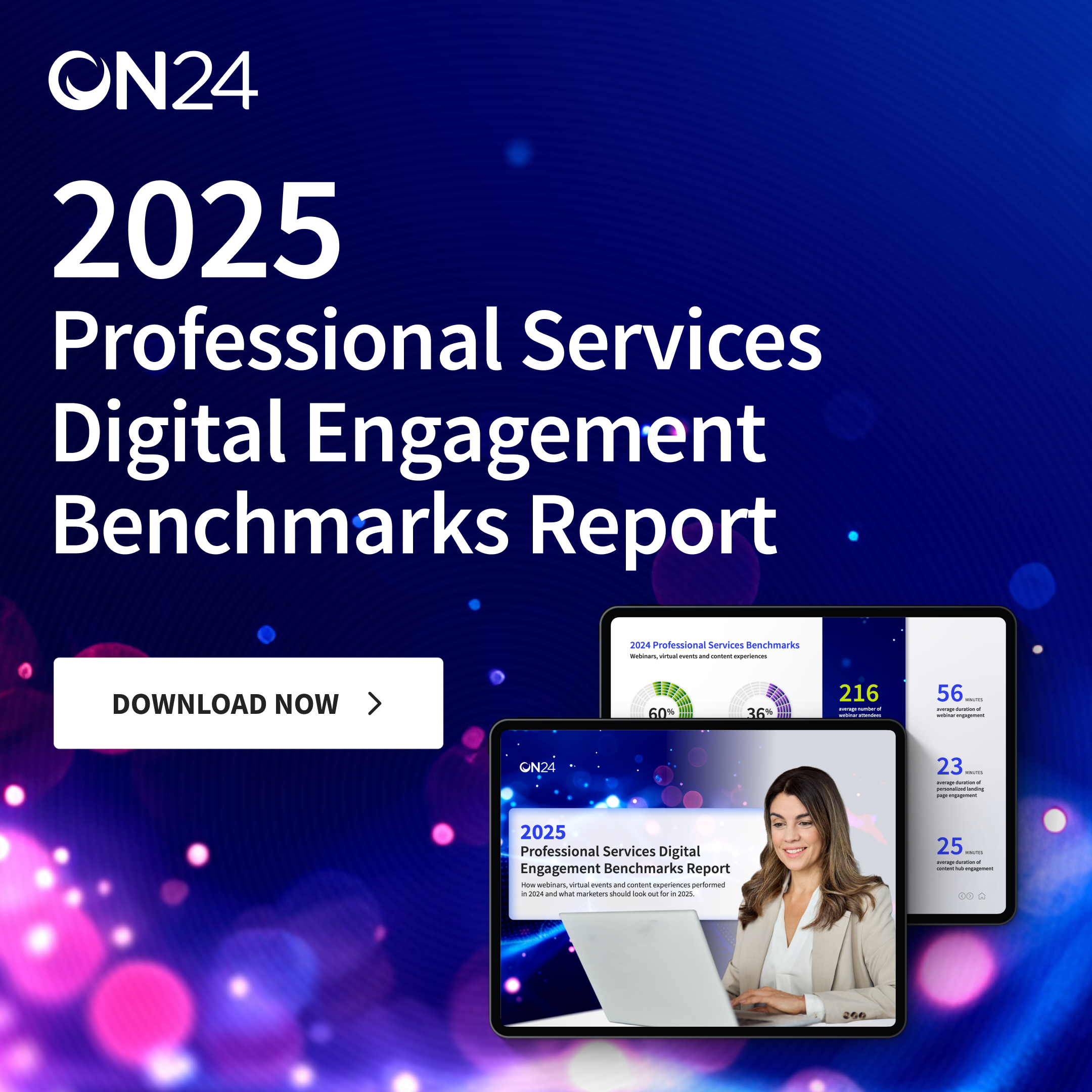Trouver des clients est un défi majeur pour toute entreprise de services professionnels, mais les avocats doivent surmonter des obstacles supplémentaires. La concurrence est élevée, tout comme le besoin de confiance, c’est pourquoi il est crucial de se constituer une présence en ligne établie.
Avec 81% de personnes utilisent Internet pour rechercher des services juridiques, le marketing web pour les avocats n’a jamais été aussi important. Alors, que vous soyez un cabinet d’avocats récemment créé ou un praticien indépendant cherchant à améliorer sa présence en ligne, voici comment vous pouvez créer une stratégie numérique sur mesure qui attire de nouveaux clients avec nos meilleurs conseils de marketing pour avocats.
Comprendre l’importance du marketing web pour les avocats

L’acquisition de clients dans le secteur juridique a connu des changements significatifs au cours des dernières années. Les gens se tournent désormais vers Internet lorsqu’ils cherchent des réponses à leurs questions ou des solutions à leurs problèmes, y compris ceux qui recherchent un soutien juridique.
Cela signifie que comprendre comment utiliser efficacement le marketing en ligne est une condition préalable au succès.
Le passage au numérique pour les services juridiques

Les clients s’appuient sur les recherches en ligne et les avis pour trouver une assistance juridique. Google Tendances montre que, entre novembre 2020 et novembre 2025, les recherches pour « avocat près de chez moi » ont augmenté de 81 % à elles seules.
Enquête sur les besoins juridiques des consommateurs américains de Thomson Reuters a révélé que 82 % des répondants qui ont contacté un avocat après avoir appris leur existence via le web ont utilisé des avis en ligne pour éclairer leur décision.
L’essor des interactions clients axées sur le numérique souligne le besoin accru de marketing numérique pour les cabinets d’avocats. Sans une stratégie de marketing web bien exécutée, il peut être difficile d’atteindre de nouveaux clients et de gagner leur confiance.
Avantages du marketing web pour les cabinets d’avocats
Bien que les méthodes de marketing traditionnelles, comme les recommandations de bouche à oreille, aient encore leur place, ces techniques à elles seules ne suffisent plus. Pour développer votre cabinet et générer un flux de clients fiable, il est essentiel d’adopter les avantages du marketing numérique.
Augmenter la visibilité
Si les clients potentiels sont en ligne, c’est là que vous devez être. La publicité en ligne et les stratégies d’optimisation pour les moteurs de recherche (SEO) garantissent que votre marque est visible sur les moteurs de recherche et sur l’ensemble du web afin que les clients potentiels puissent vous trouver.
Construire la crédibilité
La crédibilité est particulièrement importante dans le domaine juridique. Un site Web professionnel soutenu par des avis en ligne positifs et un contenu de haute qualité aidera à établir votre expertise et à créer une relation de confiance avec les clients potentiels.
Attirer des prospects de haute qualité
Le marketing numérique offre des capacités de ciblage plus importantes que les méthodes de marketing traditionnelles telles que la publicité sur panneaux d’affichage. Vous pouvez vous concentrer sur les intérêts spécifiques du public, les emplacements et la démographie pour vous assurer que les prospects que vous attirez sont les prospects que vous souhaitez.
Composants clés d’une stratégie de marketing Web efficace pour les avocats

Les stratégies de marketing en ligne des cabinets d’avocats performants contiennent plusieurs composants qui travaillent ensemble pour accroître la visibilité et attirer des clients. Voici les éléments essentiels d’un plan de marketing en ligne efficace pour les avocats :
Créer un site Web professionnel
Votre site Web représente votre entreprise et peut influencer la décision d’un prospect de choisir vos services, il est donc important de bien le réaliser.
Les facteurs clés à prendre en compte lors de la création d’un site Web qui reflète votre expertise et inspire confiance aux utilisateurs sont :
-
- Conception et identité de marque – en plus de refléter votre marque, votre site Web doit transmettre compétence avec un design propre et professionnel.
- Expérience utilisateur – la manière dont les utilisateurs naviguent sur votre site Web et trouvent des informations importantes devrait constituer la base de la structure de votre site.
- Réactivité mobile – avec la majorité du trafic web provenant des appareils mobiles, l’apparence et le fonctionnement de votre site sur mobile devraient être une priorité absolue.
- Appels à l’action clairs (CTA) – La conversion des clients potentiels en véritables prospects nécessite des appels à l’action clairs, à la fois convaincants et faciles à trouver.
Optimisation pour les moteurs de recherche (SEO) pour les avocats
La mise en œuvre de pratiques d’optimisation pour les moteurs de recherche (SEO) appropriées aidera votre site Web à se classer pour les requêtes pertinentes dans les pages de résultats des moteurs de recherche. C’est l’une des techniques les plus précieuses pour attirer de nouveaux prospects et accroître l’autorité de votre marque en ligne.
Voici quelques façons dont les avocats peuvent utiliser le SEO pour améliorer le classement dans les recherches et attirer des prospects :
-
- Cibler des mots-clés locaux – vous pouvez utiliser des outils de recherche de mots-clés pour découvrir des termes de recherche locaux tels que « avocat en immigration à New York » ou « avocat en droit du travail près de chez moi ». Vous pouvez ensuite cibler ces termes avec des pages de destination sur mesure.
- Création de contenu informatif – Les outils de recherche de mots-clés peuvent également être utilisés pour identifier les questions et préoccupations les plus courantes des clients potentiels. Ces informations peuvent être utilisées pour créer un contenu précieux qui répond à leurs besoins et à leurs points de douleur.
- Améliorer le référencement technique – Les facteurs techniques tels que la vitesse du site, la sécurité, la réactivité mobile et les balises d’en-tête peuvent également impacter le classement dans les moteurs de recherche.
Marketing de contenu pour renforcer la confiance
Le marketing de contenu consiste à créer et à promouvoir du contenu en ligne partagé que le public trouve utile ou intéressant. Cela inclut les FAQ, les vidéos et d’autres ressources éducatives.
Mais le contenu aura une valeur limitée s’il ne résonne pas avec le public. Tenez compte de leurs besoins et de leurs intérêts tout en faisant preuve d’expertise – par exemple, en expliquant des processus juridiques complexes ou en écrivant sur des sujets pertinents pour votre domaine de pratique. Vous voudrez vous assurer que vos activités de marketing sont conformes aux exigences réglementaires applicables.
Tirer parti des avis en ligne et de la gestion de la réputation
Pour les clients, les risques associés au choix d’une mauvaise représentation juridique sont plus importants que dans la plupart des autres scénarios. Ils veulent être certains qu’ils ne prennent pas la mauvaise décision – et cela signifie souvent de se tourner vers la preuve sociale.
Les avis positifs d’anciens clients peuvent renforcer la réputation et influencer les nouveaux clients potentiels. Pour tirer pleinement parti de cette puissance, envisagez de :
-
- Encourager les clients satisfaits à laisser des avis sur diverses plateformes
- Répondre rapidement et professionnellement aux avis négatifs
- Afficher les témoignages des clients sur votre site Web
Publicité payante pour des résultats immédiats
L’une des stratégies de marketing en ligne les plus populaires que les cabinets d’avocats peuvent utiliser pour générer des prospects est la publicité payante. Des plateformes comme Google Ads, Meta Ads et LinkedIn Ads vous permettent d’afficher des annonces à des audiences définies et de ne payer que lorsque votre annonce est cliquée. C’est ce qu’on appelle la publicité « pay-per-click » (PPC).
En fait, le secteur juridique a l’un des taux de conversion les plus élevés de Google Ads.
Utiliser les réseaux sociaux pour se connecter avec les clients

Les questions juridiques peuvent être intimidantes pour ceux qui ne sont pas formés en droit, ce qui rend plus difficile pour les clients potentiels de se sentir connectés. Les réseaux sociaux sont une opportunité d’humaniser votre pratique.
Choisir les bonnes plateformes pour votre pratique
Le choix des bonnes plateformes de médias sociaux pour promouvoir vous-même ou votre cabinet dépend des domaines du droit dans lesquels vous pratiquez et des objectifs que vous poursuivez. Par exemple, les spécialistes du droit des sociétés ou du travail qui cherchent à cibler un public professionnel auront probablement plus de succès sur LinkedIn.
Les avocats individuels qui souhaitent construire leur marque personnelle en ligne peuvent bénéficier des capacités de narration visuelle d’Instagram. D’autre part, les avocats en droit des accidents corporels ou en droit de la famille pourraient trouver que les fonctionnalités d’engagement communautaire de Facebook ouvrent des voies précieuses pour se connecter avec des clients potentiels.
Créer un contenu engageant et éducatif
Pour que le marketing sur les réseaux sociaux fonctionne, votre contenu doit résonner. Cela ne signifie pas seulement choisir les bons sujets, il s’agit également de sélectionner les formats les plus efficaces pour faire passer votre message.
Voici quelques exemples d’idées de publications sur les réseaux sociaux pour les avocats :
-
- Carrousels d’images sur les actualités juridiques récentes
- Petites vidéos répondant à des questions juridiques courantes
- Publications de texte partageant des commentaires positifs de clients
Votre contenu sur les réseaux sociaux doit éduquer et informer, tout en faisant la promotion de votre propre expertise.
Campagnes de médias sociaux payantes pour une portée ciblée
Mener des campagnes de médias sociaux payantes peut vous aider à atteindre des segments spécifiques de public, tels que les familles ou les propriétaires de petites entreprises. Pour créer une campagne publicitaire sur les plateformes de médias sociaux, le processus implique généralement ces étapes :
-
- Définissez vos critères de ciblage
- Créez du contenu publicitaire qui parle à votre public cible
- Définissez votre budget et votre planning publicitaire
- Surveillez la performance de la campagne
- Testez et optimisez pour améliorer les résultats
Tirer parti du marketing par webinaires pour engager et éduquer
Webinaires sont un excellent outil pour établir des liens plus profonds avec des clients potentiels. Ils offrent l’opportunité d’éduquer les publics et de répondre aux préoccupations dans un format plus personnalisé et intime.
Avantages du marketing par webinaires pour les avocats
Le format de webinaire offre des avantages uniques aux avocats qui cherchent à renforcer leur présence en ligne et à interagir avec des clients potentiels. Ces avantages incluent :
-
- Interactivité – les webinaires vous permettent d’interagir avec votre public en temps réel, de répondre à des questions spécifiques et d’offrir une plus grande valeur grâce à une communication directe.
- Renforcer la confiance – les webinaires offrent l’opportunité d’approfondir les sujets, de démontrer l’expertise et d’établir l’autorité dans votre domaine de pratique.
- Accessibilité – les sujets juridiques complexes peuvent être décomposés et communiqués de manière simple et compréhensible, les rendant ainsi plus accessibles au public.
- Capture de prospects – s’adresser directement aux participants aide à créer un sentiment d’authenticité et de connexion. Cela peut inciter les clients potentiels à partager plus facilement leurs informations de contact.
Planifier et promouvoir votre webinaire
L’élément le plus fondamental de la planification d’un webinaire réussi est de choisir un sujet qui intéresse votre public. Les sujets pertinents pour les cabinets d’avocats et les avocats pourraient être :
-
- Changements récents dans la législation
- Explication des processus juridiques
- Questions ou préoccupations courantes des clients
Pour maximiser la participation au webinaire, envisagez d’utiliser des stratégies promotionnelles telles que des campagnes par e-mail, les réseaux sociaux et le contact avec les réseaux locaux.
Suivi des participants au webinaire
Après la fin de votre webinaire, la pire chose que vous puissiez faire est de ne rien faire. C’est le moment idéal pour mettre en œuvre d’autres stratégies d’engagement lorsque votre public est le plus réceptif.
Vous pouvez entretenir les prospects après le webinaire en envoyant des e-mails de suivi sur vos services, en fournissant des liens vers des webinaires à la demande utiles et des ressources supplémentaires.
Les informations recueillies aideront également à adapter les efforts de sensibilisation pour améliorer les taux de conversion. Par exemple, vous pouvez analyser les sous-thèmes auxquels les participants ont le mieux répondu pendant un webinaire et mettre en évidence ces domaines dans le courrier électronique de suivi.
Suivi et mesure du succès dans le marketing web

S’assurer que vos efforts fonctionnent et commencent à générer un retour sur investissement est crucial pour le succès à long terme. Voici ce qu’il faut rechercher lors du suivi des performances.
Métriques clés à surveiller
L’analyse de la performance de la plupart des stratégies de marketing en ligne des cabinets d’avocats nécessitera de surveiller les métriques critiques suivantes :
-
- Trafic du site Web – le nombre de visiteurs de votre site Web et les pages les plus populaires.
- Métriques d’engagement – les exemples incluent le temps que les utilisateurs passent sur votre site, le nombre de commentaires reçus sur les publications sociales ou le nombre de questions posées lors d’un webinaire.
- Taux de conversion – mesure dans laquelle votre site Web et d’autres canaux transforment le public en prospects via des soumissions de formulaires, des appels téléphoniques et des demandes de réservation.
- Qualité des prospects – si les prospects générés sont pertinents, authentiques et de grande valeur.
Outils de suivi des performances
Les outils que vous utilisez pour le suivi des performances dépendent des canaux et des plateformes sur lesquels vous travaillez. Certains des plus courants sont :
-
- Google Analytics – fournit des informations complètes sur le comportement des utilisateurs sur votre site Web
- SEMrush – un outil de référence pour le suivi des performances SEO
- Law Ruler – une plateforme CRM spécifique au domaine juridique avec des rapports personnalisables
- Google Ads – vous permet de suivre et de gérer la performance des campagnes PPC
Adaptation des stratégies en fonction des données
Ne pas utiliser d’analyse dans votre stratégie de marketing web, c’est comme conduire les yeux bandés. Il n’y a rien pour guider votre chemin, et vous ne finirez probablement pas là où vous voulez être.
Au lieu de cela, les informations que vous recueillez en suivant diverses métriques devraient continuellement orienter votre direction. Bien que vous deviez toujours commencer quelque part, savoir ce qui fonctionne et ce qui ne fonctionne pas signifie que vous pouvez ajuster les tactiques selon les besoins, affiner votre stratégie au fur et à mesure et vous concentrer sur les canaux à forte performance.
Conclusion
Le marketing web est essentiel pour les avocats. Les clients potentiels se tournent de plus en plus vers Internet pour trouver de l’aide juridique et pour s’assurer que vous êtes la solution à laquelle ils se tournent, vous avez besoin d’une stratégie numérique robuste en place.
En mettant en œuvre les conseils et stratégies de marketing pour avocats partagés dans ce blog, vous pouvez commencer à développer votre présence en ligne et le nombre de prospects de haute qualité que vous attirez. N’oubliez pas de consulter notre centre de ressources pour plus d’informations sur le marketing numérique.





